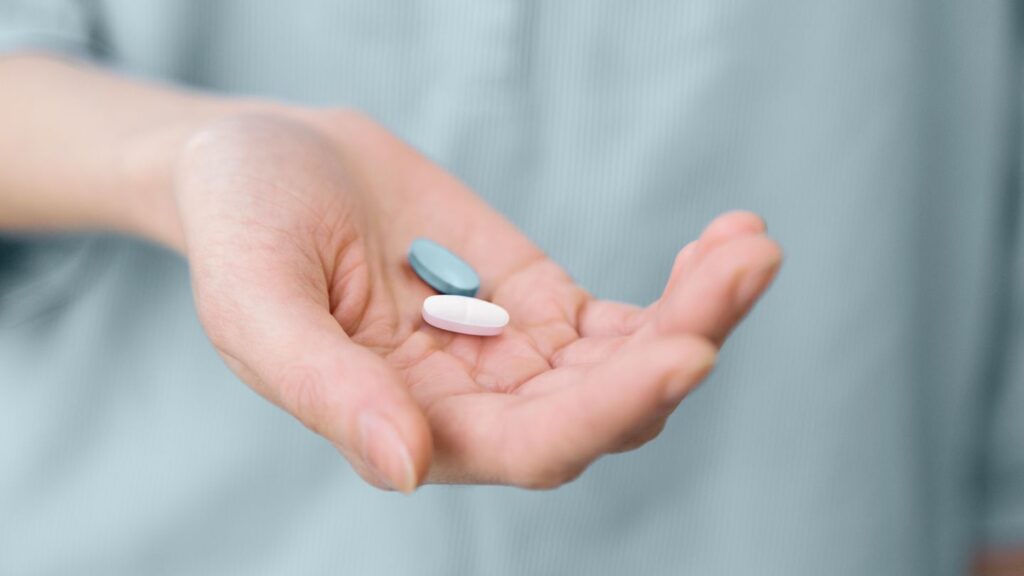Hypothyroidism is a condition in which your thyroid gland, which controls your metabolism and energy, doesn’t produce enough thyroid hormone. If you have this condition, your doctor might prescribe levothyroxine (Synthroid, Unithroid) to manage your symptoms.
Some research suggests that having a magnesium deficiency contributes to inflammation and may play a role in the development of hypothyroidism. But supplementing with magnesium may help prevent a deficiency, and improve anxiety symptoms and sleep quality, according to the British Thyroid Foundation. Anxiety and sleep issues are two common symptoms of hypothyroidism, according to a study.
If you’re interested in taking magnesium, it’s important to speak with your healthcare provider first. They can help determine if a supplement is right for you and advise you on the best time to take it.
How Magnesium and Levothyroxine Interact
Levothyroxine contains a synthetic salt known as T4, which is similar to the substance the thyroid gland produces, according to PubChem.
If you take levothyroxine and magnesium hydroxide, a type of antacid, at the same time of day, the magnesium can attach itself to T4. As a result, your body may not be able to absorb the T4, potentially reducing the effectiveness of levothyroxine.
If your levothyroxine medication is not properly absorbed, you may begin to get symptoms of hypothyroidism. According to Mayo Clinic, these symptoms can include:
- Anxiety
- Fatigue
- Weight gain
- Muscle aches and weakness
You don’t need to avoid magnesium altogether to prevent these effects, though.
If you’re interested in taking a magnesium supplement, be sure to talk with your healthcare provider. They may recommend taking the supplement at least four hours after taking levothyroxine, according to Mayo Clinic. Or, they may suggest getting magnesium through foods or trying a different supplement instead.
According to the National Institutes of Health, many over-the-counter laxatives and antacids include magnesium, such as magnesium oxide. So, it’s also important to look closely at the ingredients list of these medications before taking any within four hours of levothyroxine.
Alternative to Magnesium Supplements
If you’re concerned about a potential interaction, you may not need a magnesium supplement at all. Many foods are rich in magnesium and may already be a part of your diet.
According to Cleveland Clinic, foods high in magnesium include:
- Black beans: One-half cup has 60 milligrams (mg) of magnesium.
- Edamame: One-half cup has 50 mg.
- Cooked spinach: One-half cup has 78 mg.
- Sweet corn: One-half cup has 27 mg.
- Potato with skin: One medium potato has 48 mg.
- Dark chocolate: One ounce (oz) has 64 mg.
- Avocado: One avocado has 58 mg.
- Banana: One banana has 32 mg.
- One oz of roasted almonds has 80 mg.
Health experts typically recommend eating between 310 and 420 mg of magnesium per day to maintain healthy levels.
According to the National Institutes of Health, symptomatic magnesium deficiency due to low diet intake in healthy people is uncommon, because the kidneys limit the amount lost in urine excretion.
But if you decide to stop supplementing with magnesium, keep an eye out for symptoms of a deficiency, such as:
Loss of appetite
- Nausea
- Vomiting
- Weakness
- Fatigue
Be sure to speak with your healthcare provider if you notice any of these.

